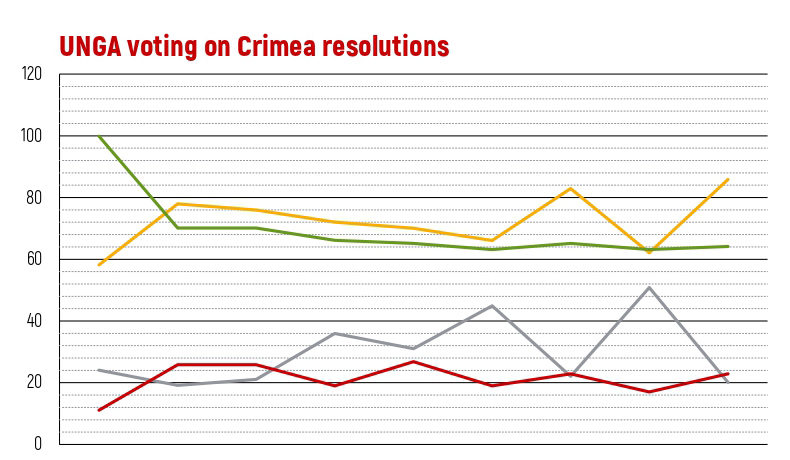Since 2014, the UN General Assembly has adopted resolutions on violations of human rights and international norms in Crimea committed by the Russian Federation. Over 7 years, the UN General Assembly has adopted 9 resolutions -- on the territorial integrity of Ukraine (2014), on the human rights situation in Crimea (2016, 2017, 2018, 2019, 2020), and on the militarization of the Crimean peninsula (2018, 2019, 2020)
Apart from the first resolution on the territorial integrity of Ukraine, which was more unequivocally supported and voted for by 100 countries, support for the human rights resolutions and militarization resolutions is slightly lower and the number of countries supporting these resolutions changes every year. The number of countries voting in favor ranges from 60-80, 20-30 countries vote against, and another 70-80 countries abstain.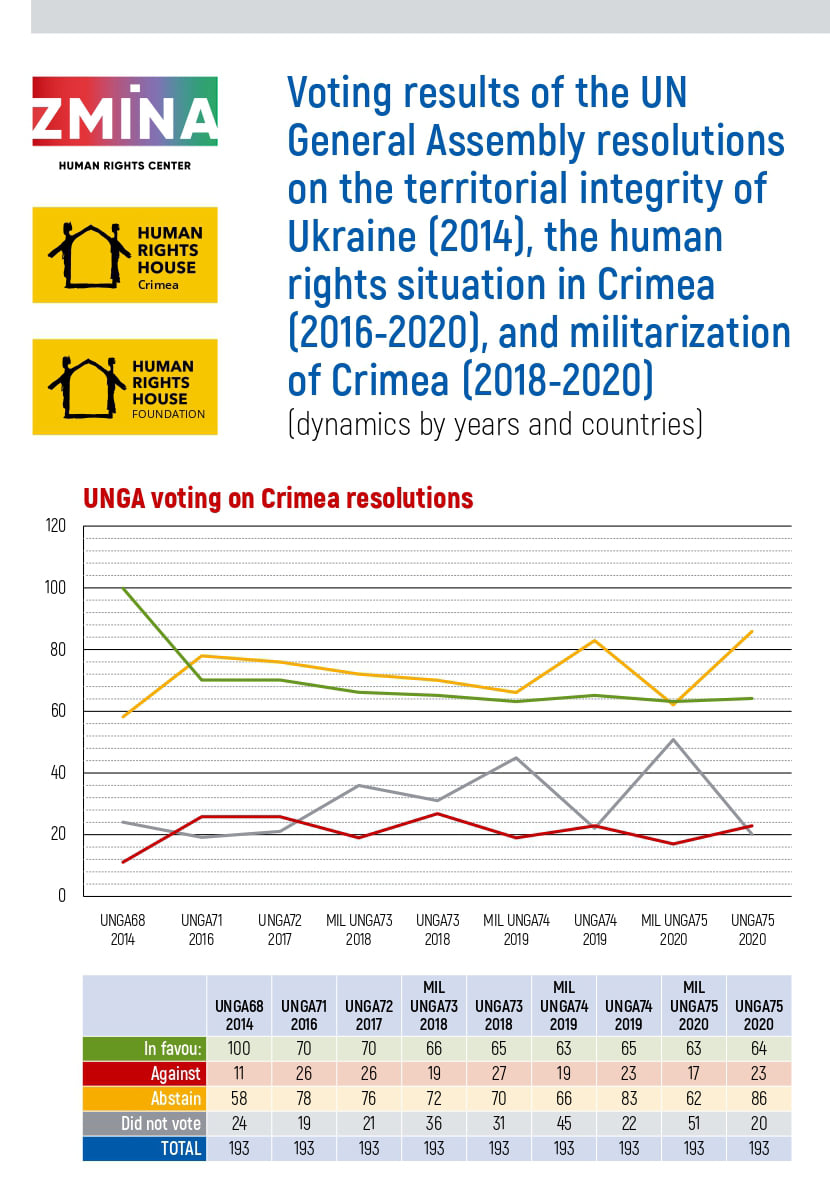
Nonetheless, for voting to be valid and for the adoption of a resolution by the UN General Assembly, the ratio of votes for and against is what matters. So even if there are more countries that abstained than those that voted in favor, the resolution is still adopted.
Russia and its satellites always vote against - Venezuela, Syria, Cuba, Belarus, Armenia, etc. As well, countries with the greatest human rights problems, such as China or North Korea, become situational allies of Russia: they generally oppose resolutions focused on specific countries/territories.
However, the number of countries supporting the Crimean resolutions is an important indicator, because if more and more countries move from support to passive "abstention," it indicates a certain "fatigue" from the Crimean issue, unwillingness to support Ukraine, which is in a state of war for seven years and opposes the occupation.
That is why the work of the Ministry of Foreign Affairs and civil society is so important, so that focus is not lost on Crimean issues at the UN. We hope that the launch of the Crimean Platform, which Ukraine initiated in 2020, will be a new impetus for the consolidation and coordination of international efforts aimed at the de-occupation of Crimea and the protection of human rights there.
For many years, human rights organizations have called for the creation of an international platform for Crimea, and we hope that the efforts will be effective, help in the struggle for the release of political prisoners, and bring the day of Crimea's return to Ukrainian control closer.
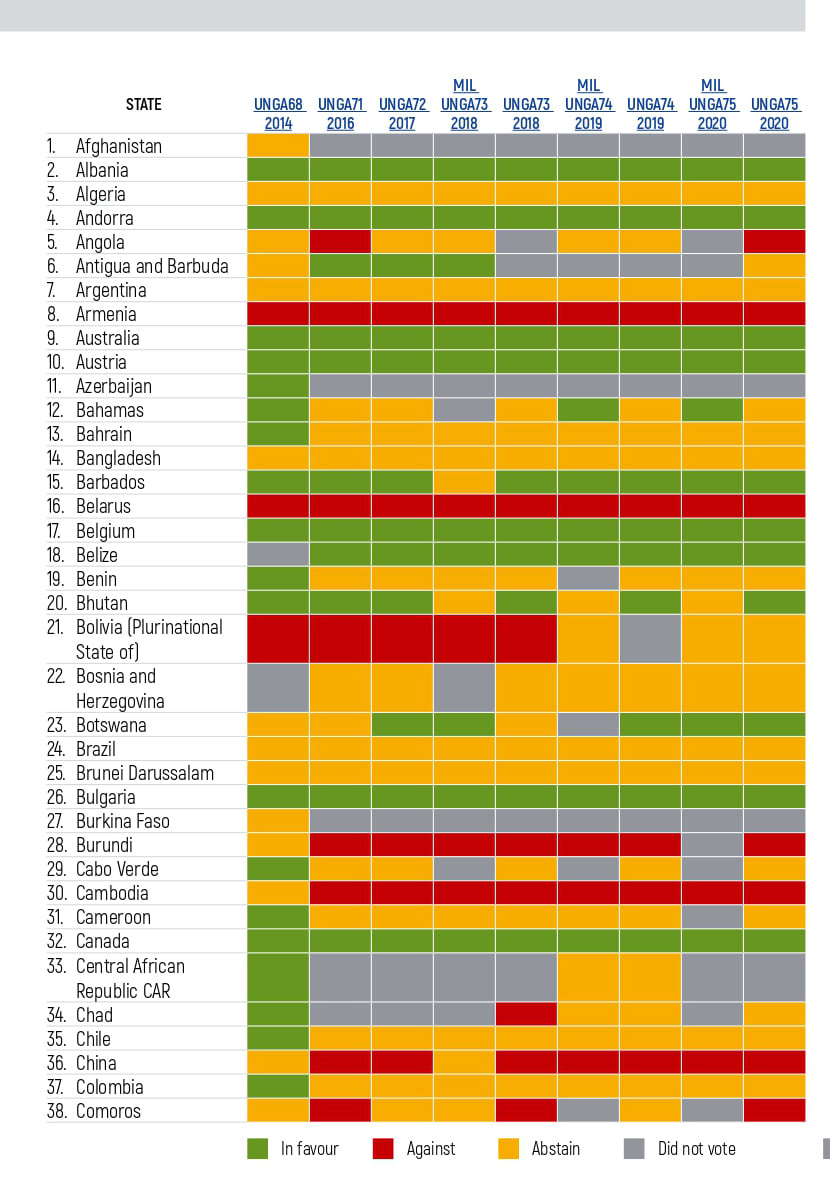

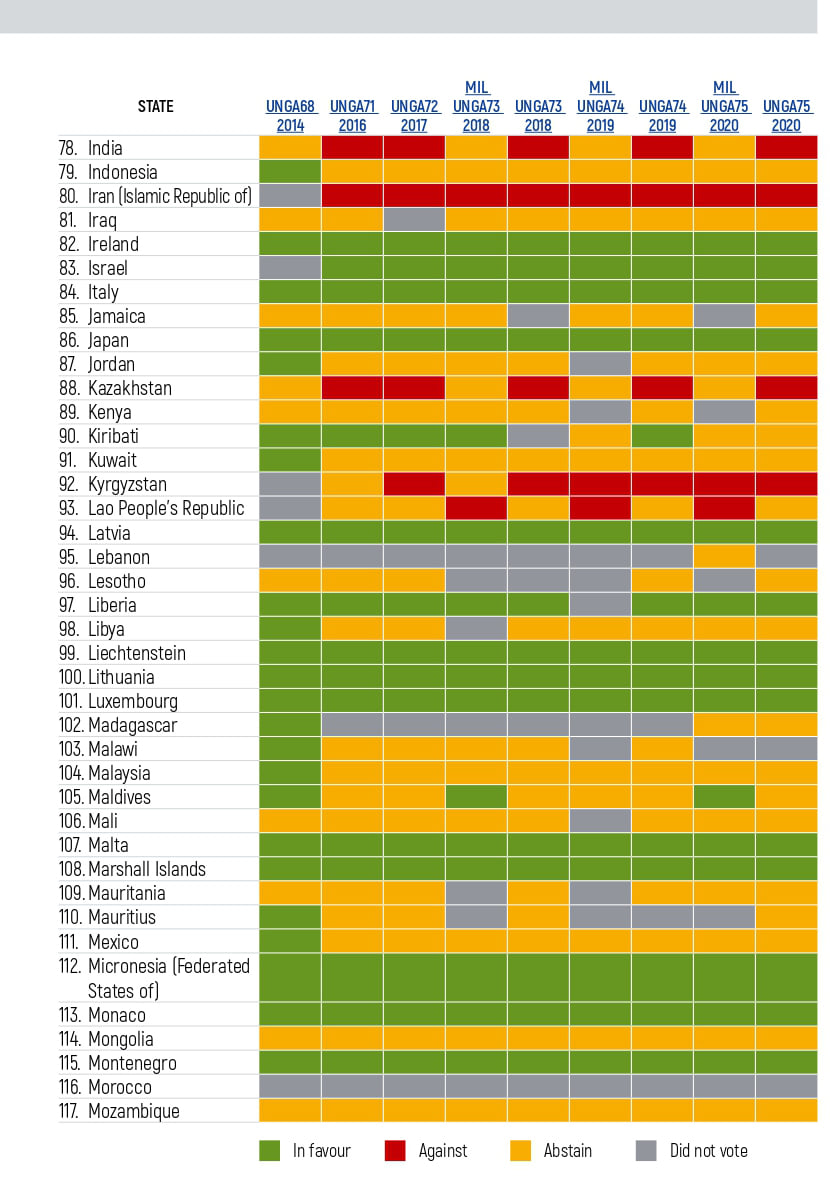

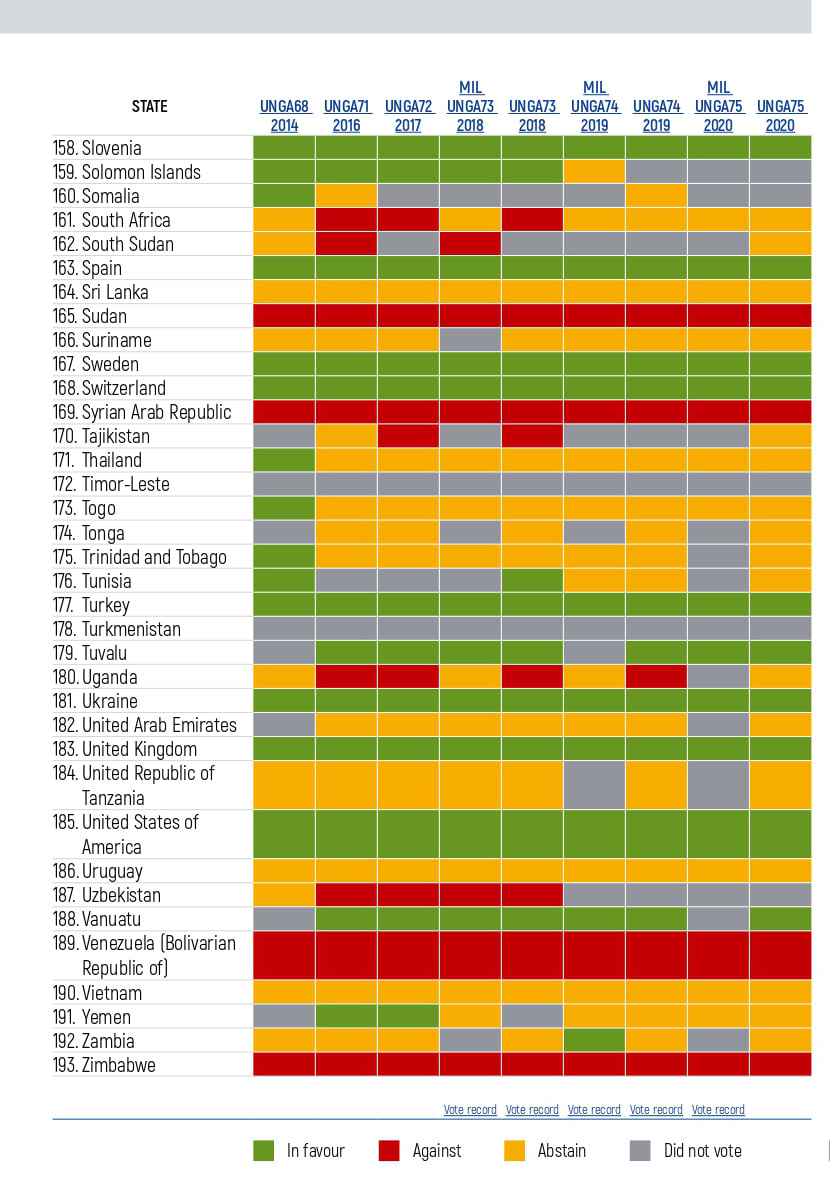
A PDF version of this report is available here.

Read also:
- Ukraine “satisfied” as Russia gets nervous about Crimean Platform
- Crimean Platform sets the scene for deoccupation, all UN members should join – Ukrainian expert at UNSC
- UN committee adopts resolution recognizing Russia as occupying power in Crimea (2016)
- New UN resolution on Crimea confirms Russia is an occupying power, brings 10 important changes for Ukraine (2017)
- Why Ukraine’s new UN General Assembly resolution is important for returning Crimea and political prisoners (2018)
- New UNGA resolution: Crimea temporarily occupied by Russia, Russia must release political prisoners & stop repressions (2018)
- The Resolution of United Nations on the Azov Sea and the diplomatic defeat of Russia (2018)
- Russia’s replacement of population in occupied Crimea violates Geneva Convention – UN report (2019)
- UNGA vote on militarization of Crimea highlights Moscow’s international isolation on Ukraine, Portnikov says (2020)

